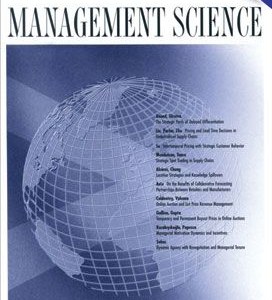
Baillon, A., Bleichrodt, H., Keskin, U.(., l'Haridon, O. and Li, C. (2017). The effect of learning on ambiguity attitudes Management Science, 64(5):2181--2198.
-
Affiliated authors
-
Publication year2018
-
JournalManagement Science
This paper studies the effect of learning information on people{\textquoteright}s attitudes toward ambiguity. We propose a method to separate ambiguity attitudes from subjective probabilities and to decompose ambiguity attitudes into two components. Under models like prospect theory that represent ambiguity through nonadditive decision weights, these components reflect pessimism and likelihood insensitivity. Under multiple priors models, they reflect ambiguity aversion and perceived ambiguity. We apply our method in an experiment where we elicit the ask prices of options with payoffs depending on the returns of initial public offerings (IPOs) on the New York Stock Exchange. IPOs are a natural context to study the effect of learning, as prior information about their returns is unavailable. Subjects perceived substantial ambiguity and they were insensitive to likelihood information. We observed only little pessimism and ambiguity aversion. Subjective probabilities were well calibrated and close to the true frequencies. Subjects{\textquoteright} behavior moved toward expected utility with more information, but substantial deviations remained even in the maximum information condition.